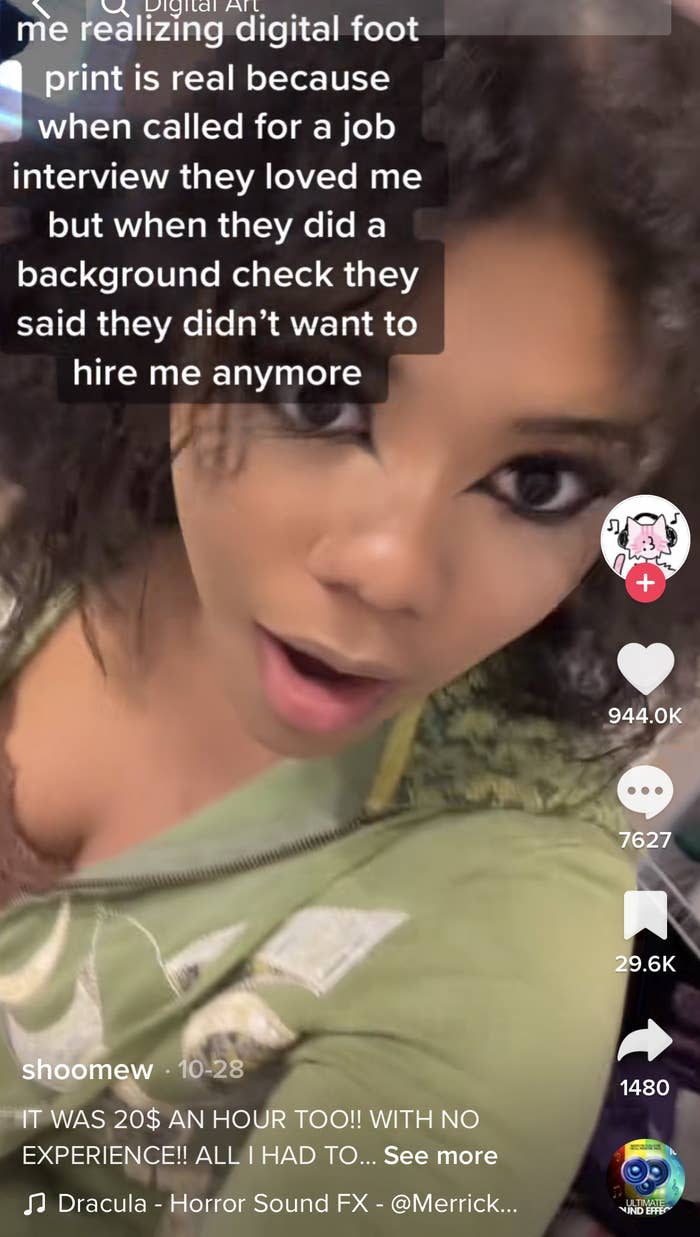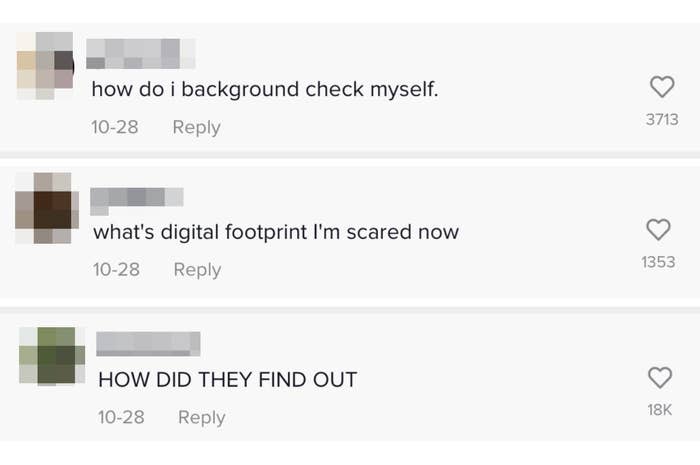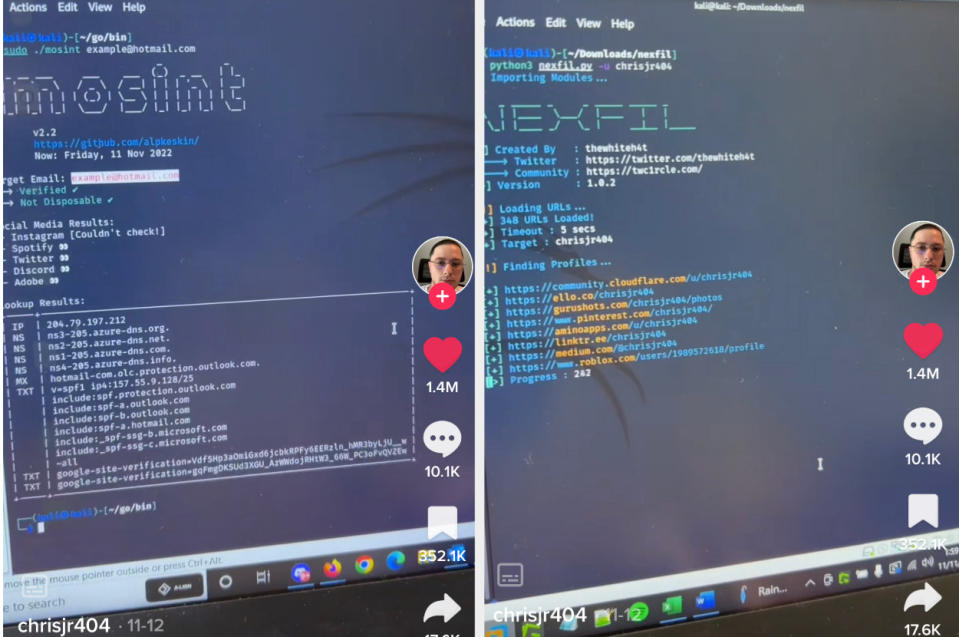"Me Realizing Digital Footprint Is Real": This TikToker Lost Out On A Job, So A Cybersecurity Expert Shared Exactly How Companies Find You On Social Media
BuzzFeed
3 min read
You know how they say the internet is forever? Well, recently a couple of TikTokers delivered a very viral lesson about just how easy it is for employers to track down your digital footprint.
CBC / Via giphy.com
It all started when 17-year-old Jayden (@shoomew) posted a video sharing their shock and astonishment after they lost out on a job over things they'd posted on social media. They wrote, "Me realizing digital footprint is real because when they called for a job interview they loved me but when they did a background check they said they didn't want to hire me anymore."

@shoomew / Via tiktok.com
And in the comments, one question kept popping up: how do I background check myself???

@shoomew / Via tiktok.com
Thankfully, cybersecurity pro, Chris Southerland Jr. (@chrisjr404), chimed in with a stitch showing a few of the tools that companies use to find candidates on social media. In the video, which has been viewed over 14 million times, Chris shares that companies can find accounts associated with your email using a tool called Mosint and accounts under a specific username using a tool called Nexfil.

Chris Southerland Jr
To learn more, I reached out to Chris. He says that even though many people were shocked at how easy it is to find info using these tools, this is just the tip of the iceberg. "Employers can find out way more about you than I showed. It all depends on the type of job you are looking to get."

Chris Southerland Jr / Via tiktok.com
"There are literally thousands of tools that a company can use to spy on their employees. There is software that can scrape your Instagram account, figure out where you have been, who you associate with, and more. However, it is best to focus on the solution, not the problem."

Boris Zhitkov / Getty Images
He says that what companies are able to find about you can really affect your prospects in the job market. "Most people do not have a second thought about their professional life when they post on their personal social media, which is understandable. However, the amount of money you get offered, the job itself, and everything else can be majorly affected."
So here's what Chris's advice for anyone who's looking for a job right now. "Personally, I am not worried about what I post online whatsoever. If I did want to lock down my online presence, I would use a different real name, username, profile picture, and email for all my different social media accounts. Additionally, I would not attach a phone number to the [social media] account that was on my résumé and make my accounts private. Lastly, make sure when you Google your name, nothing pops up that you do not want found."
NBC / Via giphy.com
And he added that for folks who want to learn more or break into the cybersecurity industry, he hosts a Discord that can be joined.
As for Jayden, the teenage user whose video started this whole convo, they say that they don't plan to change their posting style for now. "My followers enjoy my deranged and bad posts, so I just continued making my questionable posts afterward." And in the future, if they ever decide to cover up their digital tracks, hopefully, it won't be too difficult for them to start fresh.
If you're wondering what's okay and not okay to post, that depends in large part on what kind of work you do and your industry's standards. Earlier this year, I interviewed Sara Skirboll of CareerBuilder about how to manage your social media when you're job hunting, and she offered a lot of insights. But to sum it up, Sara said her best advice is, "I live by the phrase, 'When in doubt, delete.'"

Leonid Korchenko / Getty Images